|
Via Philadelphia International Medicine  Nominations for participation in the second annual Physician Partnership Program (PPP) sponsored by Philadelphia International Medicine (PIM) are now open. If you are interested in being part of an academically challenging, career enhancing, relationship building program, please take the time to review the enclosed application for the 2018 Physician Partnership Program. PIM will select 15 specialists from around the world to spend a week with their peers in Philadelphia’s academic medical centers this October. If you are one of the finalists, PIM will provide a stipend to subsidize your transportation and lodging costs to meet other global physicians, learn from your colleagues, and build new global friendships. We believe knowledge sharing among the world’s physicians will lead to better outcomes for patients – whether they are from Mexico, the Dominican Republic, Jamaica, Saudi Arabia, Kuwait, the United Arab Emirates, Bermuda, Lithuania or the United States. To show our commitment to this concept, PIM is launching a global, competitive program for specialists from international hospitals or health care organizations to come to Philadelphia from Oct. 15 to 19 and participate side-by-side with a peer. Successful nominees will observe surgery or clinic rounds, participate in grand rounds, attend faculty sessions, attend clinical team meetings and otherwise closely observe how American counterparts go about their clinical day. PIM is asking international organizations with which it works to nominate candidates for the equivalent of a $6,000 stipend, including a $3,000 cash travel and lodging stipend, and a clinical program valued at about $3,000. PIM staff and the PIM Board of Managers, with guidance and review by the PIM Physicians Advisory Committee, will make the final decisions on scholarship winners. To supplement the limited number of scholarships that will be awarded for 2018, some organizations may choose to support additional candidates with their own funds. Keeping in mind our logistic and academic constraints, PIM will entertain these requests. All program participants will be able to network with the international community in Philadelphia, establish friendships with physicians here and their fellow award winners, and enjoy the sites of Philadelphia, the birthplace of the United States, and of North American medicine. For more information about Philadelphia, go to www.visitphilly.com. For more information about PIM, go to www.philadelphiamedicine.com. Please read more about the Physician Partnership Program in the enclosed application form and overview. Important dates to remember are: Application deadline May 25; scholarship announcements July 16; program start date Oct. 15. If you have any questions, please do not hesitate to contact me at [email protected], or 001-215-575-3720. Sincerely, Leonard Karp
President and CEO
Via Philly.com
By Andrew Maykuth, Staff Writer @Maykuth | [email protected] Two new giant cranes capable of unloading the world’s largest container ships arrived in the city Saturday on a slow boat from China, the 21-story-tall structures so huge they literally stopped traffic when they cleared the Delaware Memorial Bridge with only six feet to spare.
The cranes, manufactured by Shanghai Zhenhua Heavy Industries Co. Ltd.(ZPMC) of Shanghai, at a cost of $12 million each, will allow the Port of Philadelphia to keep pace with other port facilities, port officials said.
“Now we have the cranes so we can be competitive on the East Coast,” said Jeff Theobald, the port’s chief executive, who was among the officials and workers who turned out to gawk at the oddly configured vessel dock at the Packer Avenue Marine Terminal. “This is a great day for the Port of Philadelphia,” said Jerry Sweeney, chairman of the Philadelphia Regional Port Authority. 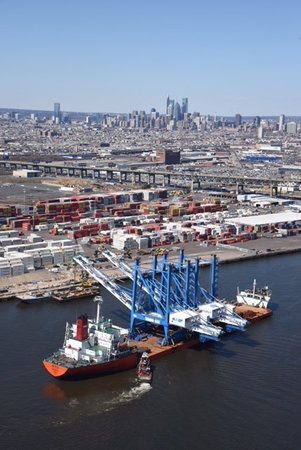 TODD TRICE / PHILAPORT Two giant new gantry cranes for the Port of Philadelphia arrive on Saturday aboard the Zhen Hua 16 after a 91-day voyage from Shanghai, China, where they were manufactured. TODD TRICE / PHILAPORT Two giant new gantry cranes for the Port of Philadelphia arrive on Saturday aboard the Zhen Hua 16 after a 91-day voyage from Shanghai, China, where they were manufactured.
The heavy-load Zhen Hua 16 vessel, owned by ZPMC, is specially designed to ride low in the water so that the cranes, which weigh 1,684 tons each and are 252 feet high, can be slid directly off the ship’s deck onto the wharves.
But the small amount of space separating the deck from the water means that the vessel must travel very slowly in the open water. It needed 91 days to sail to Philadelphia, passing below South Africa, with an intermediate stop in South Carolina, where it unloaded two cranes for the Charleston port. “They’re massive,” said Dave McGuire, PhilaPort project engineer, who traveled to Charleston to observe the elaborate unloading operation that will be repeated in the next few days in Philadelphia. “The closer they get, the more impressive they are.” The Zhen Hua 16 needed to take on extra ballast and wait until low tide to pass underthe Delaware Memorial Bridge, and just to be safe, authorities halted vehicular traffic on the bridge during the passage. The port corporation bought one of the cranes, and Holt Logistics Corp. and Greenwich Terminals LLC, which operates the Packer Avenue terminal, paid for the second.
“This will allow us to be more productive,” said Thomas J. Holt Jr., president of Astro Holdings LLC, the Packer Avenue lease-holder. “We can get ships in and out more quickly, which means more cargo, which means more jobs.”
Holt and the other officials praised Gov. Wolf for approving a $300 million grant in 2016 aimed at doubling the port’s container cargo capacity and creating about 2,000 more direct port jobs. The port and Holt have ordered three more of the new super post-Panamax cranes — so named because they can reach across larger vessels designed to pass through the widened Panama Canal. The three new cranes are scheduled to arrive next year. By Graziella DiNuzzo, Director of Communications and Development, WTCGP 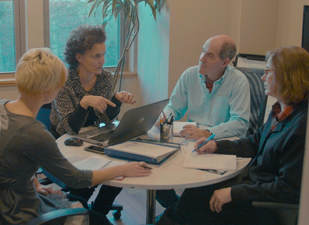 Myriam Siftar and her team at MTM Linguasoft Myriam Siftar and her team at MTM Linguasoft Translation affects every aspect of our lives in business and personally and literally makes the world go round. Every letter and phrase needs to be converted precisely to perfectly match not only the language, but also the culture. In The book, Found in Translation: How Language Shapes Our Lives and Transforms the World, authors Nataly Kelly and Jost Zetzsche write of translation errors that are not only costly but also dangerous. HSBC was forced to launch a $10 million rebranding campaign to repair the mistranslated slogan, “Assume Nothing,” which was translated to “Do Nothing” in various countries. WTCGP trade specialists counsel client companies to connect with a professional translation service company before entering a new market. Member company, MTM Linguasoft, a full service translation company provides a wide range of services to help companies avoid translation land mines. The idea to start MTM LinguaSoft came to Myriam Siftar in 2002, while working at a business incubator helping French businesses expand into the United States market. “I saw firsthand that even if you have the best products or services, opportunity for overseas growth is limited if you don’t speak the language of your prospective customers. And with the rise of online presence, it was obvious that global businesses would need international websites with multilingual content. From the start, I wanted the company to focus on the intersection of technology, language, and culture,” says Myriam Siftar, President MTM offers business translation services to support global companies with international trade in all sectors, including legal and medical translations. MTM also support global marketing and sales campaigns in the form of multilingual websites, landing pages and content for trade shows and catalogs. “It’s a digital world, so the demand for translated websites, mobile apps, and e-learning has been growing steadily, and that shouldn’t surprise anyone,” adds Siftar “We worked with a mobile app developer to create translated versions of their flagship apps for eight new language markets: Arabic, Chinese, French, German, Portuguese, Russian, Spanish, and Turkish. We also translated and localized their website for these languages. We helped with international search optimization to make sure the localized websites and apps were found by search engines in the target markets. Within three months, our client saw an average 30% increase in sales in these markets. There is also increased demand for digital video. “The most dramatic increase we’ve seen over the past few years has been in demand for multilingual voiceovers for digital video. Product demonstrations and e-learning modules are more effective with voiceovers because translated subtitles distract from the visual content. Digital voice recording is more flexible and affordable than it used to be, and clients are taking advantage of that,” says Siftar MTM clients understand the critical importance of using professional translation services. For those who believe Google Translate or an in-country bi-lingual employee can handle it check out this interesting list provided by MTM “Top Ten Misconceptions About Translation.” So what’s the most important reason to use professional translation services? “Revenues,” says Siftar. “There’s a quote from a former German chancellor: “If I’m selling to you, I speak your language. If I’m buying, dann müssen Sie Deutsch sprechen!” Regardless of how well they speak English, clients prefer information in their own language, and plenty of your competitors are willing to comply. This wasn’t always the case: twenty years ago, about 80% of the Internet was in English. Today, only 25% of the Internet is in English.” Honorees will receive their awards at a reception Thursday, May 3, 2018 6:00 pm – 8:30 pm
At Pennsylvania Academy of the Fine Arts, 118 N. Broad Street, Philadelphia, PA Award Recipients: Global Business Leadership Award: Leo, Tom and Michael Holt, Owners Holt Logistics Corp. 2018 Member Company of the Year Awards: Video Ray, Inc. Pennsylvania Member Company of the Year TD Bank, New Jersey Member Company of the Year First Annual Legacy Award: Chemtech International Media Contact: Graziella DiNuzzo – [email protected] 609-680-7670 March 20, 2018, Philadelphia, PA…. The World Trade Center of Greater Philadelphia (WTCGP) will hold its 16th Annual “World Trade Centers Day” Awards and Celebration on Thursday, May 3, 2018 at the Pennsylvania Academy of the Fine Arts, 118 North Broad Street, Philadelphia PA. Following the tragic events of September 11, 2001, the United Nations, in cooperation with the World Trade Centers Association (WTCA) chartered a day to be recognized around the world as “World Trade Centers Day.” Every World Trade Center creates its own signature event with the common goal of celebrating peace and prosperity through global trade. The WTCGP organizes an Awards Ceremony and Celebration to recognize the global business achievement of outstanding individuals and companies whose contributions have helped to make Greater Philadelphia a world-class region. This year, WTCGP has selected Leo, Tom and Michael Holt, owners of Holt Logistics Corp., to receive our Global Business Leadership Award. Patriarch Leo Holt began with one truck in 1926. Today, the Holt family are leaders in the growth and development of South Jersey and Philadelphia ports, providing solutions in globally dynamic segments of the transportation industry, including truck and rail transportation, marine terminal services, and warehousing. From the Gloucester Marine Terminal and Packer Avenue Terminal, to the Paulsboro Marine Terminal, Riverside Renewable Energy, Delaware Avenue Enterprises, Pier 5 Camden, Heller at Bellmawr, and Suffolk Avenue Associates, Holt facilities are driving economic growth and job creation along both sides of the Delaware. The Packer Avenue Marine Terminal is considered the largest container terminal on the Delaware River and the Gloucester Marine Terminal has the largest on-dock reefer warehouse in the United States. With significant investment by the Commonwealth of Pennsylvania, the purchase of the second set of super post-Panamax container cranes and the 103-mile deepening of the Delaware River navigation channel to 45 feet from 40 feet, bigger ships are coming to Philadelphia through the expanded Panama Canal. The Holt family is well-positioned to support increased trade flowing through our ports, create additional jobs, and advance Greater Philadelphia as a global leader. We are also pleased to announce our 2018 Member Companies of the Year – Video Ray for Pennsylvania, and TD Bank for New Jersey. About Video Ray VideoRay is the largest volume producer of Underwater ROVs (Remotely Operated Vehicles) in the world. The ROVs are manufactured for use in port security, law enforcement, force protection, offshore oil and gas, hydroelectric, science and research, ship inspection, nuclear, and other markets where clients need to know underwater data and activity. The WTCGP is proud to have had the opportunity to support your global growth in 45 countries, including Australia, New Zealand, Egypt, Saudi Arabia, Norway, the United Kingdom, Brazil, China, Japan, Turkey, Jordan, Lebanon, Israel, Germany, India, Singapore, and the Netherlands, with $18 million in export sales reported over the last five years. www.videoray.com About TD Bank TD Bank, N.A., is an American national bank and subsidiary of the Canadian multinational Toronto-Dominion Bank based in Toronto, Ontario. It operates primarily across the East Coast, in fifteen states and Washington, D.C. TD Bank is the eleventh largest bank in the United States by total assets, resulting from many mergers and acquisitions. TD Bank has more than 1,200 locations along the east coast. https://www.tdbank.com WTCGP client companies have access to TD’s expertise in export finance and international banking solutions to support their global success. As a founding member of the WTCGP Export Finance Program, and a consistent supporter of WTCGP seminars, international business networking events, TD Bank has been key to our success in supporting the global growth of our client companies in Southern New Jersey and Southeastern Pennsylvania. The first annual Legacy Award will be given to the very first member of the World Trade Center of Greater Philadelphia, Chemtech International, which became a member in 2002, which was also the first year of the WTCGP. Kosh Dapthary and his wife Surma started Chemtech International in 1984 and their son, Neel Dapthary, currently President, runs the day-to-day operations. About Chemtech International Chemtech International Inc. has been manufacturing, distributing and marketing high quality, products, systems and technologies for a broad spectrum of markets all over the globe. Areas of operation include wastewater testing, analysis and treatment; pharmaceutical manufacturing; chlorine and industrial gas cylinder valves; secondary containment for oil and hazardous chemical spills. All Chemtech products are manufactured in the U.S. Chemtech has been working with the WTCGP to advance its business in over 30 markets around the world. About the World Trade Center of Greater Philadelphia The World Trade Center of Greater Philadelphia (WTCGP) is one of over 320 World Trade Centers in 89 countries around the globe. A non-profit and membership - based organization, the WTCGP accelerates global business growth for companies in Southeastern Pennsylvania and Southern New Jersey by providing customized, one-on-one trade counseling, market research, educational programs, trade mission support, business networking events, and powerful connections to customers and partners worldwide. Since 2002, the WTCGP has served as a catalyst for regional economic growth and job creation, helping area companies generate over $1.6B in incremental export sales, supporting over 20,200 jobs. www.wtcphila.org Via U.S. Department of Commerce FOR IMMEDIATE RELEASE
Sunday, March 18, 2018 Office of Public Affairs (202) 482-4883 [email protected] Today, the U.S. Department of Commerce announced its procedures for excluding products from the recently announced tariffs on steel and aluminum product imports. As directed by President Trump, the Department will publish the procedures in the Federal Register and will start accepting exclusion requests from U.S. industry on Monday, March 19, 2018, at 8:45 AM. Click HERE to see the Federal Register notice. “These procedures will allow the Administration to further hone these tariffs to ensure they protect our national security while also minimizing undue impact on downstream American industries,” said Secretary Ross. “Starting tomorrow, domestic industry will be able to apply for exclusions through a fair and transparent process run through Commerce’s Bureau of Industry and Security.” Secretary Ross, in consultation with other Administration officials, will evaluate exclusion requests, taking into account national security considerations. In that evaluation, the Secretary will consider whether a product is produced in the United States of a satisfactory quality or in a sufficient and reasonably available amount. A single response to each exclusion request will be posted on regulations.gov. Only individuals or organizations using steel or aluminum articles identified in Presidential Proclamations 9704 and 9705 and engaged in business activities in the United States may submit exclusion requests. Exclusion requests will be posted for a 30-day comment period on regulations.gov. Separate exclusion requests must be submitted for each unique steel or aluminum product import. For an exclusion request to be considered, the requester must provide a full factual description of the specific product, its properties, and its quantity. Any individual or organization in the United States may file objections to steel or aluminum exclusion requests, but the Commerce Department will only consider information directly related to the submitted exclusion request that is the subject of the objection. Organizations submitting an objection filing on an exclusion request should provide specific information on the product that their company can provide that is comparable to the steel or aluminum product that is the subject of the exclusion request. Organizations filing an objection should also provide factual information on the production capabilities at steel or aluminum manufacturing facilities that they operate in the United States; the availability and delivery time of the products that they manufacture relative to the specific steel or aluminum product that is subject to an exclusion request; and discussion on the suitability of its product for the application or applications identified by the exclusion requestor. Both the exclusion requests and objection filings will be available for public viewing on regulations.gov. Processing of exclusion requests normally will not exceed 90 days, including adjudication of objections submitted on exclusion requests. The forms for submitting steel and aluminum exclusion requests, and objections to specific exclusion requests, will be available on regulations.govon March 19, 2018, at 8:45 AM. The steel docket number is BIS-2018-0006 and the aluminum docket number is BIS-2018-0002. Copies of the forms and additional information on the exclusion process will be available at https://www.bis.doc.gov/index.php/232-steel and https://www.bis.doc.gov/index.php/232-aluminum on March 19, 2018, at 8:45 AM. For questions concerning the exclusion process, contact [email protected] or 202-482-5642 for steel-related queries and [email protected] or 202-482-4757 for aluminum-related queries. Background: On March 8, 2018, President Trump exercised his authority under Section 232 of the Trade Expansion Act of 1962 to impose a 25 percent tariff on steel imports and a 10 percent tariff on aluminum imports, with exemptions for Canada and Mexico, in order to protect our national security. The President’s Section 232 decisions are the result of investigations led by the Commerce Department, after review and comment by other relevant Federal agencies. Customs and Border Protection will begin collecting the tariffs on March 23, 2018. In his proclamation establishing the tariffs under Section 232, the President authorized the Secretary of Commerce, in consultation with other appropriate federal agency heads, to provide relief from the additional duties for any steel or aluminum articles determined "not to be produced in the United States in a sufficient and reasonably available amount or of a satisfactory quality and is also authorized to provide such relief based upon specific national security considerations. Such relief shall be provided for any article only after a request for exclusion is made by a directly affected party located in the United States.” The Presidential Proclamations on steel and aluminum may be found at https://www.whitehouse.gov/presidential-actions/presidential-proclamation-adjusting-imports-steel-united-states/ and https://www.whitehouse.gov/presidential-actions/presidential-proclamation-adjusting-imports-aluminum-united-states. 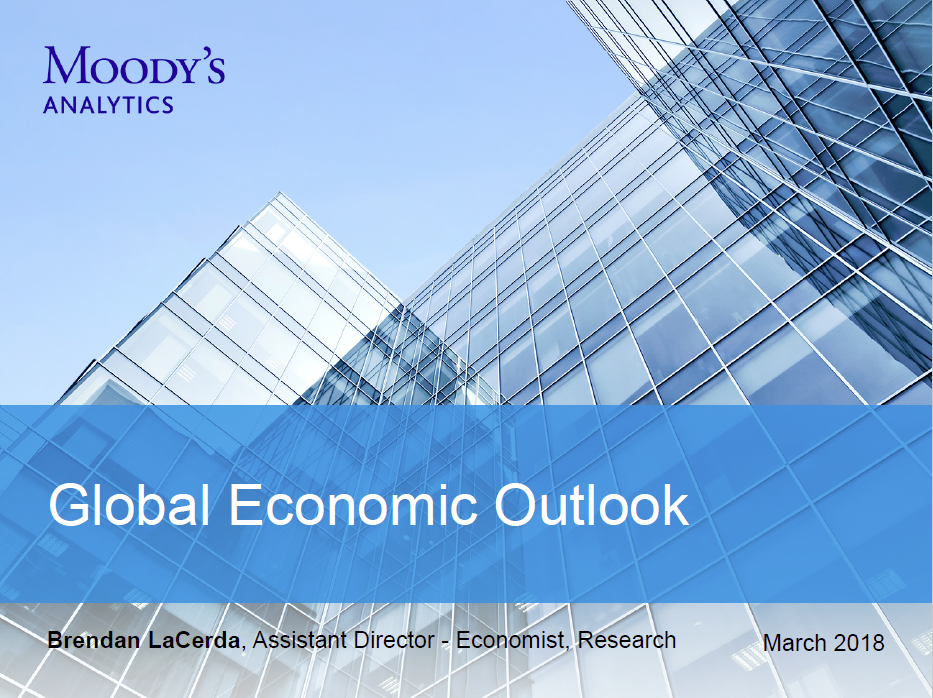 Brendan LaCerda of Moody Analytics addressed the 2018 Global Economic Outlook at the XV Global Business Conference on March 14th. Take a look into the evolving global economy - download the presentation here.
Via Stevens & Lee/Griffin International 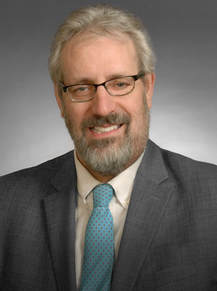 LANCASTER, PA, March 12, 2018 – Stevens & Lee/Griffin International President and CEO Wilfred H. Muskens was officially installed as the new Honorary Consul in Philadelphia of the Kingdom of the Netherlands. The ceremony was performed by Netherlands Consul General Dolph Hogewoning on February 28, 2018, in Philadelphia, PA. A native of the Netherlands, Mr. Muskens has an extensive background in international business development. Prior to joining Stevens & Lee/Griffin International, he served as Deputy Secretary for the Office of International Business Development for the Commonwealth of Pennsylvania, Department of Community and Economic Development (DCED), where he led a team of over 50 international economic development specialists and foreign-based trade and investment representatives. His previous experience with the Commonwealth includes serving as Executive Director of the Center for Direct Investment and Director of Foreign Investment for the Governor’s Action Team. Before joining DCED, Mr. Muskens was a Project Manager and Public Relations Consultant for several organizations in Europe, where he oversaw new investment projects, proposed possible sites for companies considering expansion, and developed communication and business development strategies. Mr. Muskens is fluent in English, French, Dutch and German. He earned master’s degrees from Bordeaux University, France, and Utrecht University, Netherlands. He earned an undergraduate degree from Utrecht University and attended Hull University, United Kingdom. ABOUT STEVENS & LEE/GRIFFIN INTERNATIONAL Stevens & Lee/Griffin International assists companies in capitalizing on the wide range of opportunities available to expand into global markets. Focused on import and export assistance, international trade and investment, and inbound and outbound mergers and acquisitions initiatives, we specialize in working with U.S. and foreign companies and other entities with global aspirations to formulate global strategies and make connections that will contribute to their long-term growth and success. Among other services, Stevens & Lee/Griffin International offers The International Trade Assistance Partnership Program (iTAPP) in partnership with the PA Chamber of Business and Industry, which provides a cost-effective way for a Pennsylvania company to receive ongoing trade support in important, growing export markets in China, Europe, South America and West Africa. Stevens & Lee/Griffin International is part of Stevens & Lee/Griffin, a multidisciplinary professional services platform which consists of Stevens & Lee, a large, full-service law firm; Griffin Financial Group, a FINRA-licensed investment bank; a state and local government operations consulting business; a group of 25 tax, accounting, consulting and technology professional services firms, primarily operated by former Big Four professionals; a D&O and E&O insurance risk consulting business; a financial advisory business focusing on state and local government and not-for-profit sectors; and a government affairs unit. For more information, visit www.stevensleegriffin.com. Via The White House 1. On January 11, 2018, the Secretary of Commerce (Secretary) transmitted to me a report on his investigation into the effect of imports of steel mill articles (steel articles) on the national security of the United States under section 232 of the Trade Expansion Act of 1962, as amended (19 U.S.C. 1862).
2. The Secretary found and advised me of his opinion that steel articles are being imported into the United States in such quantities and under such circumstances as to threaten to impair the national security of the United States. The Secretary found that the present quantities of steel articles imports and the circumstances of global excess capacity for producing steel are “weakening our internal economy,” resulting in the persistent threat of further closures of domestic steel production facilities and the “shrinking [of our] ability to meet national security production requirements in a national emergency.” Because of these risks and the risk that the United States may be unable to “meet [steel] demands for national defense and critical industries in a national emergency,” and taking into account the close relation of the economic welfare of the Nation to our national security, see 19 U.S.C. 1862(d), the Secretary concluded that the present quantities and circumstances of steel articles imports threaten to impair the national security as defined in section 232 of the Trade Expansion Act of 1962, as amended. 3. In reaching this conclusion, the Secretary considered the previous U.S. Government measures and actions on steel articles imports and excess capacity, including actions taken under Presidents Reagan, George H.W. Bush, Clinton, and George W. Bush. The Secretary also considered the Department of Commerce’s narrower investigation of iron ore and semi-finished steel imports in 2001, and found the recommendations in that report to be outdated given the dramatic changes in the steel industry since 2001, including the increased level of global excess capacity, the increased level of imports, the reduction in basic oxygen furnace facilities, the number of idled facilities despite increased demand for steel in critical industries, and the potential impact of further plant closures on capacity needed in a national emergency. 4. In light of this conclusion, the Secretary recommended actions to adjust the imports of steel articles so that such imports will not threaten to impair the national security. Among those recommendations was a global tariff of 24 percent on imports of steel articles in order to reduce imports to a level that the Secretary assessed would enable domestic steel producers to use approximately 80 percent of existing domestic production capacity and thereby achieve long-term economic viability through increased production. The Secretary has also recommended that I authorize him, in response to specific requests from affected domestic parties, to exclude from any adopted import restrictions those steel articles for which the Secretary determines there is a lack of sufficient U.S. production capacity of comparable products, or to exclude steel articles from such restrictions for specific national security-based considerations. 5. I concur in the Secretary’s finding that steel articles are being imported into the United States in such quantities and under such circumstances as to threaten to impair the national security of the United States, and I have considered his recommendations. 6. Section 232 of the Trade Expansion Act of 1962, as amended, authorizes the President to adjust the imports of an article and its derivatives that are being imported into the United States in such quantities or under such circumstances as to threaten to impair the national security. 7. Section 604 of the Trade Act of 1974, as amended (19 U.S.C. 2483), authorizes the President to embody in the Harmonized Tariff Schedule of the United States (HTSUS) the substance of acts affecting import treatment, and actions thereunder, including the removal, modification, continuance, or imposition of any rate of duty or other import restriction. 8. In the exercise of these authorities, I have decided to adjust the imports of steel articles by imposing a 25 percent ad valorem tariff on steel articles, as defined below, imported from all countries except Canada and Mexico. In my judgment, this tariff is necessary and appropriate in light of the many factors I have considered, including the Secretary’s report, updated import and production numbers for 2017, the failure of countries to agree on measures to reduce global excess capacity, the continued high level of imports since the beginning of the year, and special circumstances that exist with respect to Canada and Mexico. This relief will help our domestic steel industry to revive idled facilities, open closed mills, preserve necessary skills by hiring new steel workers, and maintain or increase production, which will reduce our Nation’s need to rely on foreign producers for steel and ensure that domestic producers can continue to supply all the steel necessary for critical industries and national defense. Under current circumstances, this tariff is necessary and appropriate to address the threat that imports of steel articles pose to the national security. 9. In adopting this tariff, I recognize that our Nation has important security relationships with some countries whose exports of steel articles to the United States weaken our internal economy and thereby threaten to impair the national security. I also recognize our shared concern about global excess capacity, a circumstance that is contributing to the threatened impairment of the national security. Any country with which we have a security relationship is welcome to discuss with the United States alternative ways to address the threatened impairment of the national security caused by imports from that country. Should the United States and any such country arrive at a satisfactory alternative means to address the threat to the national security such that I determine that imports from that country no longer threaten to impair the national security, I may remove or modify the restriction on steel articles imports from that country and, if necessary, make any corresponding adjustments to the tariff as it applies to other countries as our national security interests require. 10. I conclude that Canada and Mexico present a special case. Given our shared commitment to supporting each other in addressing national security concerns, our shared commitment to addressing global excess capacity for producing steel, the physical proximity of our respective industrial bases, the robust economic integration between our countries, the export of steel articles produced in the United States to Canada and Mexico, and the close relation of the economic welfare of the United States to our national security, see 19 U.S.C. 1862(d), I have determined that the necessary and appropriate means to address the threat to the national security posed by imports of steel articles from Canada and Mexico is to continue ongoing discussions with these countries and to exempt steel articles imports from these countries from the tariff, at least at this time. I expect that Canada and Mexico will take action to prevent transshipment of steel articles through Canada and Mexico to the United States. Read More |
Categories
All
Archives
July 2023
|


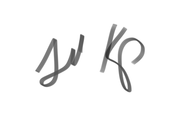

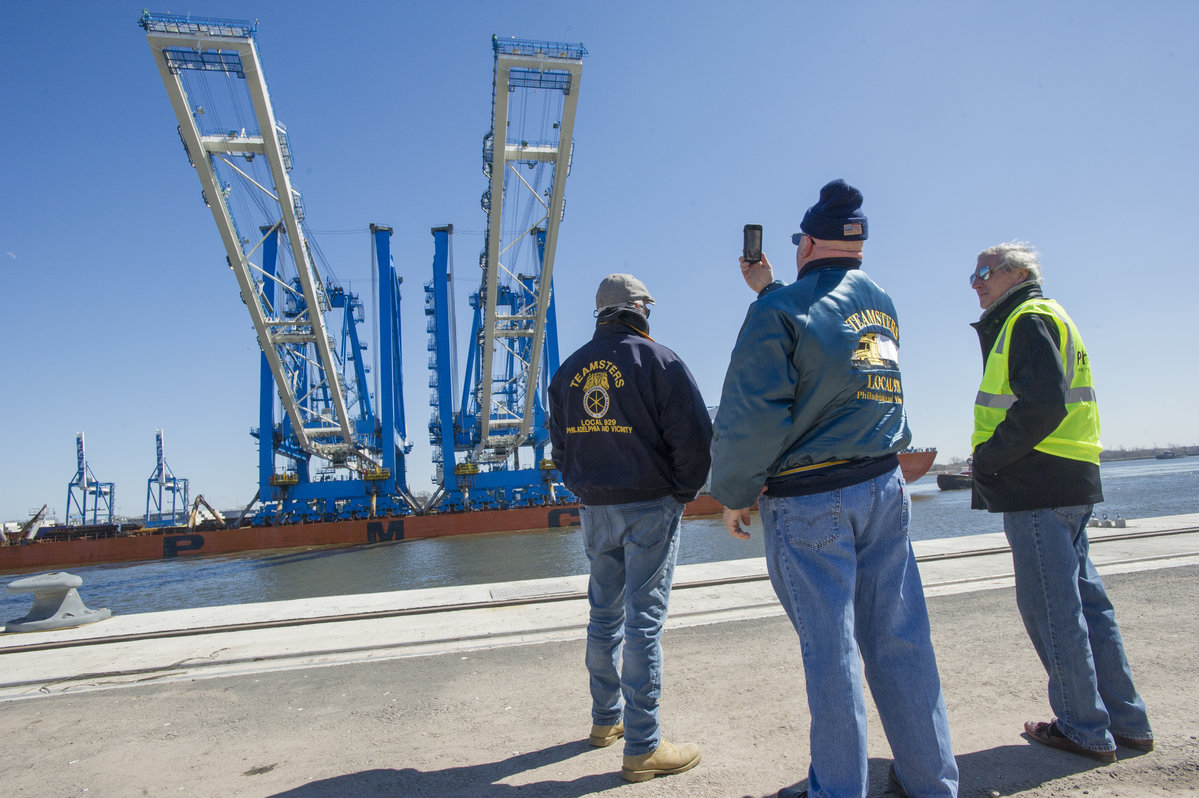
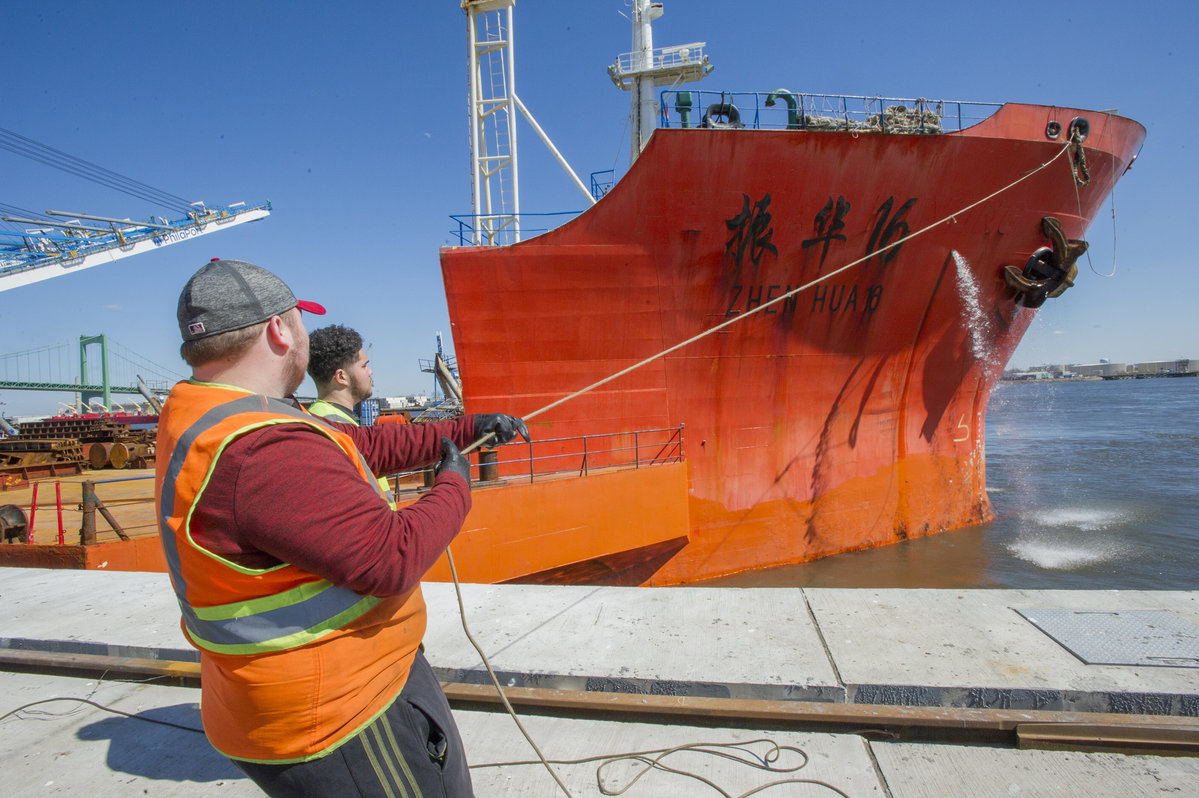
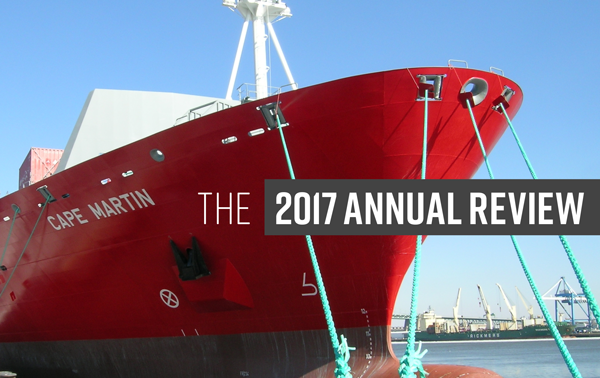
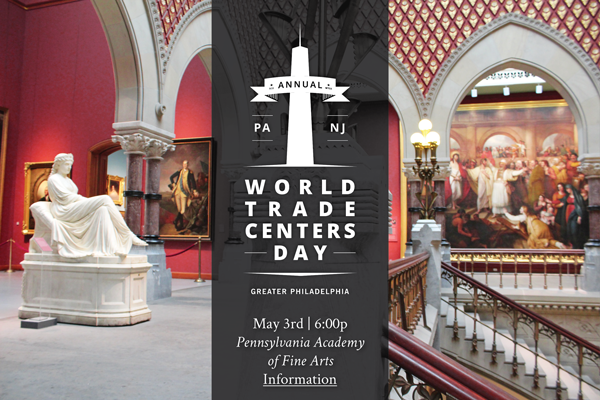
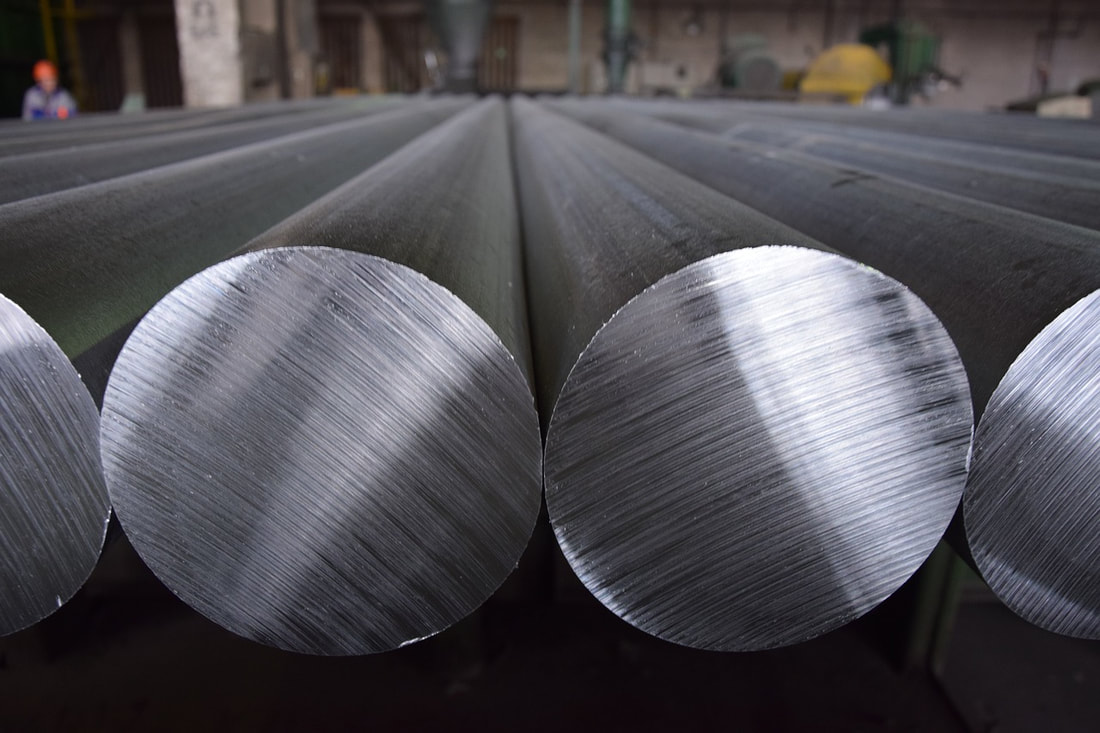
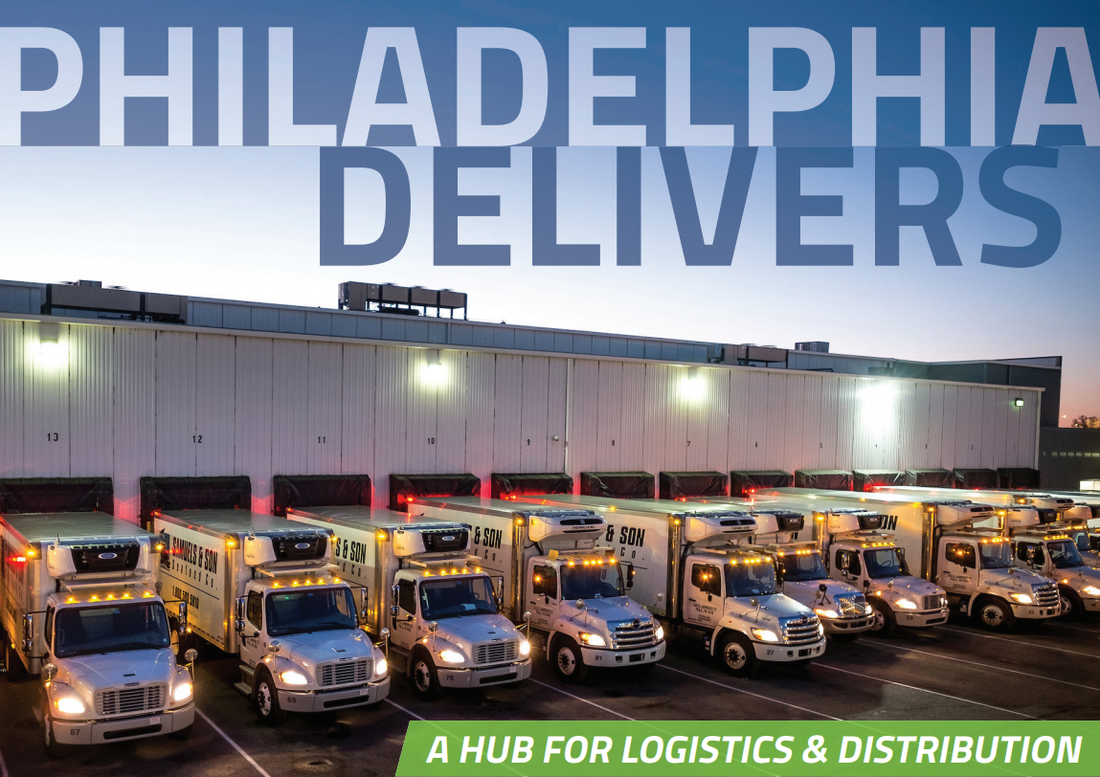
 RSS Feed
RSS Feed